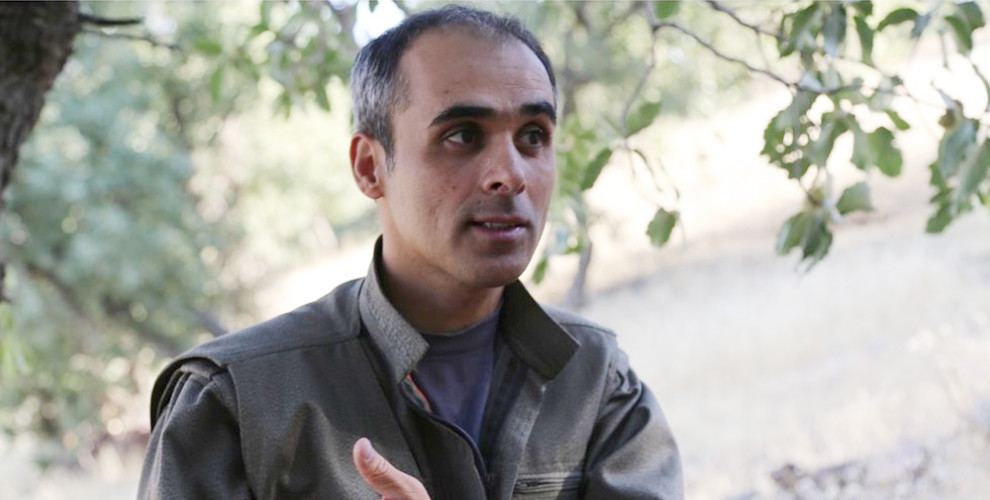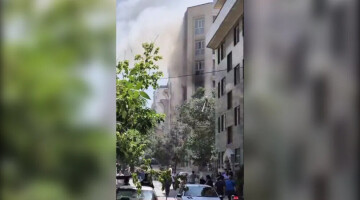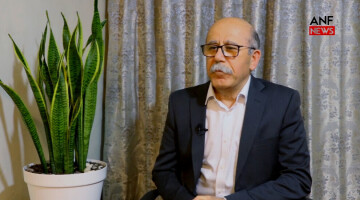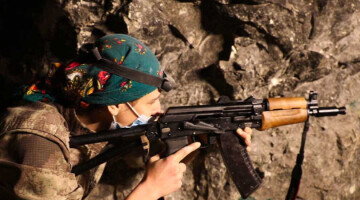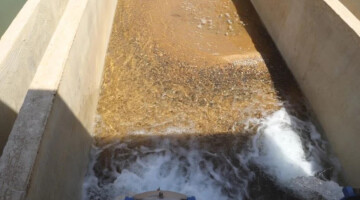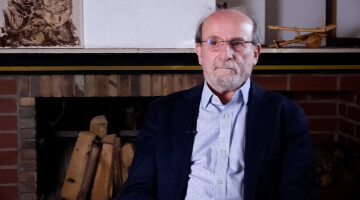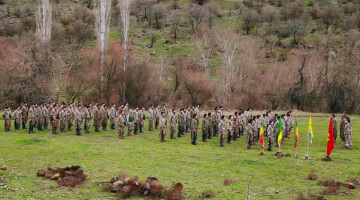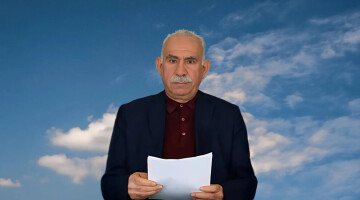Eastern Kurdistan Democratic and Free Society Movement (KODAR) Co-chair Fuat Beritan spoke to ANF about the crisis in Iran, the conflict between the US and Iran and developments in the Middle East. Beritan said there could be a war with Iran if the US doesn’t get a response to their wishes.
KODAR Co-chair Fuat Beritan pointed out that the US wants to redesign the Middle East through a transformation in Iran. Beritan stressed that the situation in Iran won’t change with just a reactionary approach, and added that they as KODAR don’t accept the current stance Iran’s current stance or foreign intervention and they will be taking on a third path. KODAR Co-chair Fuat Beritan’s comments for the ANF are as follows.
Why does KODAR insist on calling the developments in the Middle East the World War III? What are the signs of this?
First I would like to state this: According to us and all pro-freedom forces, we are all witnessing a global crisis. One sign of this crisis is that the war in the Middle East has spread over a long period of time. Because a program for a solution hasn’t been put forth among the parties in the war in the democratic framework.
For us, authoritarian powers like Iran, Turkey, Syria and Iraq and the global powers on the other side are looking to prolong their lives by leaning on war in the region. These powers have no planning for a solution to the crisis. Big and small, the powers are looking to destabilize the region. And through that, they want to go fishing in murky water, they aim to transform rather than resolve the issues through reforms. This is what is happening in the front lines for now.
THIS IS THE CRISIS OF CONTEMPORARY CAPITALISM
Why do we say World War III? The World War III is a war of allocation and to form new maps. In this war, both Europe and the US act in accordance with their interests despite all their conflicts. These powers want to preserve the system and to change it out if the need arises. The goal is not to create a soluton to the current crisis, which is the crisis of contemporary capitalism. They are looking for the pre-crisis relationships.
World War III started with the fall of the Union of Soviet Socialist Republics, and continued with the Gulf War. It has taken on dimension with the wars in Iraq, Iran, Syria and Afghanistan. Even the popular revolutions in Egypt, Tunisia and Libya couldn’t offer a solution. And the reason for that is clear: The lack of a democratic alternative and the fact that a solution based on the people hasn’t emerged.
If this is the World War III, how will the outcome take shape? Where does the conflict between the US and Iran fall on this analysis?
It is not possible to say that the issue in the Middle East can be resolved, until the global capitalist system gets out of this chaos and finds a solution. This is true for the crisis in Syria and in Iran. A military conflict against Iran or Assad is seen as a strategic situation, rather than a tactical approach. The character of this phase deepens the existing crisis. If world powers and the powers controlling the region take on an approach towards forming the rule of law, this crisis can be softened to a degree.
It seems that the US wants to apply this to Iran and the countries in crisis. If the US doesn’t get a response to their wishes, there could be a war with Iran. They could sustain this until a solution emerges, by opening new battle fronts this way. The US wants to redesign the Middle East through a transformation in Iran. Changing the current situation is important for the US.
Where will Iran’s situation evolve?
Domestic conflict and relationships in Iran have visibly increased the number of new political groups. Today in Iran, the parallel state has the power and the hegemony. This parallel state is also trying to organize itself in the political, economic and diplomatic areas, and looking to hinder Rouhani’s state. They plan to take over all power when necessary. Currently, the best method for the parallel state, in other words the Pasdar Cavalry, is to take over Rouhani’s state, develop parallel politics and protect their short and long term interests.
What is Iran doing in its domestic and foreign relationships?
One way the Islamic Republic can take could be tactical agreements with neighboring governments to gain time. And that aims to prolong the life of the system. That is how we see it. It might bring success in the short term, but in the long term it is not a way that makes sense. If it doesn’t evolve into a political solution, it would only deepen the current system crisis.
Where are the Kurds in this game, or where will they be?
The model and strategy the Kurds represent is different than other models. Today the peoples of the region are not in favor of the continuation of old issues. The peoples of the Middle East today desire a democratic model. With that, they want a way out of the crisis through a radical transformation. The Kurds are leading the transformation and change in the region and are the heroes of democracy and freedom in the region against conflict policies in the region. They are at a position to be a revolutionary democratic will and power in Iran and in the region. Kurds are an important factor in the democratic transformation. We are a great and effective potential power for the solution to the region’s issues and to be a response to the World War III in the region in particular.
We as the Eastern Kurdistan Democratic and Free Society KODAR have been insisting on a solution within the democratic framework. KODAR has even prepared a democratic road map and shared it with the public. The Islamic Republic insisted on their old approach and showed that they not only lack the will for a democratic solution, but also will try to crush all democratic forces at the slightest chance they get. This approach won’t bring a good future for Iran. As such, KODAR and PJAK have shown their will and faith to be a solution to the issues in Iran by forming a democratic project through correct analysis of the region and the world.
What does KODAR aim for exactly?
KODAR sees that the situation in Iran won’t change with just a reactionary approach, and puts forth a new political horizon. Everybody must answer this question: Do they prefer a democratic way, or one based on foreign intervention? Do they want a situation like Syria, or a democratic solution through political intellect? Like we said before, we don’t accept the current stance Iran’s current stance or foreign intervention. For us, Iran doesn’t have to be stuck between these two choices. KODAR and many progressive and pro-change forces take on a different path. What we are talking about is a third path.
This issue must be stressed, the day after KODAR and PJAK shared their projects for a solution with the public, in an unacceptable move, the Islamic Republic of Iran launched an attack against our forces and human rights defenders in Eastern Kurdistan. With some other signs, the stance Iran has taken has shown that the Islamic Republic is not in favor of a democratic solution or dialogue. Iran’s stance is geared towards the weakening and hindering of all democratic forces. The Islamic Republic authorities have not been able to respond to the public’s desires to date.
A STATE WITHOUT RECOGNITION OF RIGHTS FOR ITS OWN PEOPLE CAN’T RESOLVE A CRISIS
Islamic Republic authorities think they can respond to the conflict through political, commercial and diplomatic pressure. There is a missing, delicate link in the mind of the Islamic Republic, and that is a democratic solution within the framework of rights and freedoms. When Islamic Republic authorities make statements against crisis management and foreign threats, they assume that the government has legitimacy in the eyes of the people and that society accepts this administration.
This fanciful approach has deepened the crisis and the lack of a solution to the issues has created further tragedies. How can a government that doesn’t want to recognize the rights of its own people or to let go of the iron fist against its own people, to let go of totalitarianism create a solution to the deep crisis and chaos in the Middle East? Political fragmentation and leaving economic, societal and legal issues unresolved open the door for foreign intervention. Failing to truly democratize, Iran will try to just preserve the status quo and to stand against the crisis this way, but that will only make the situation more difficult.

